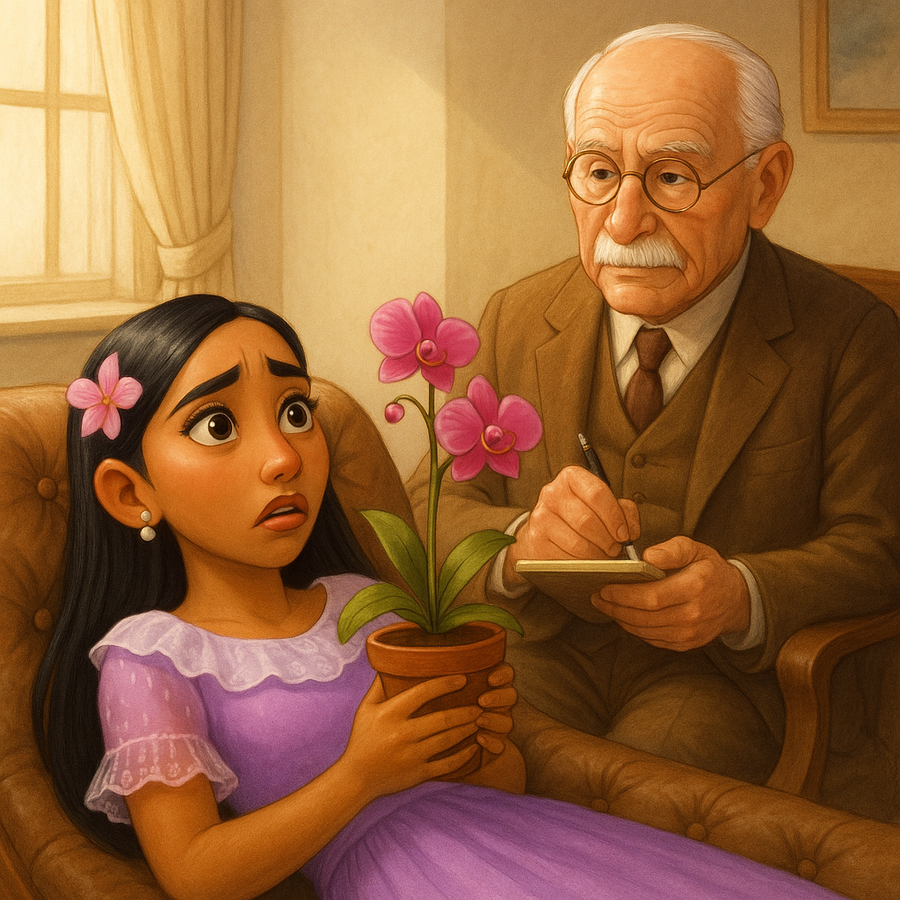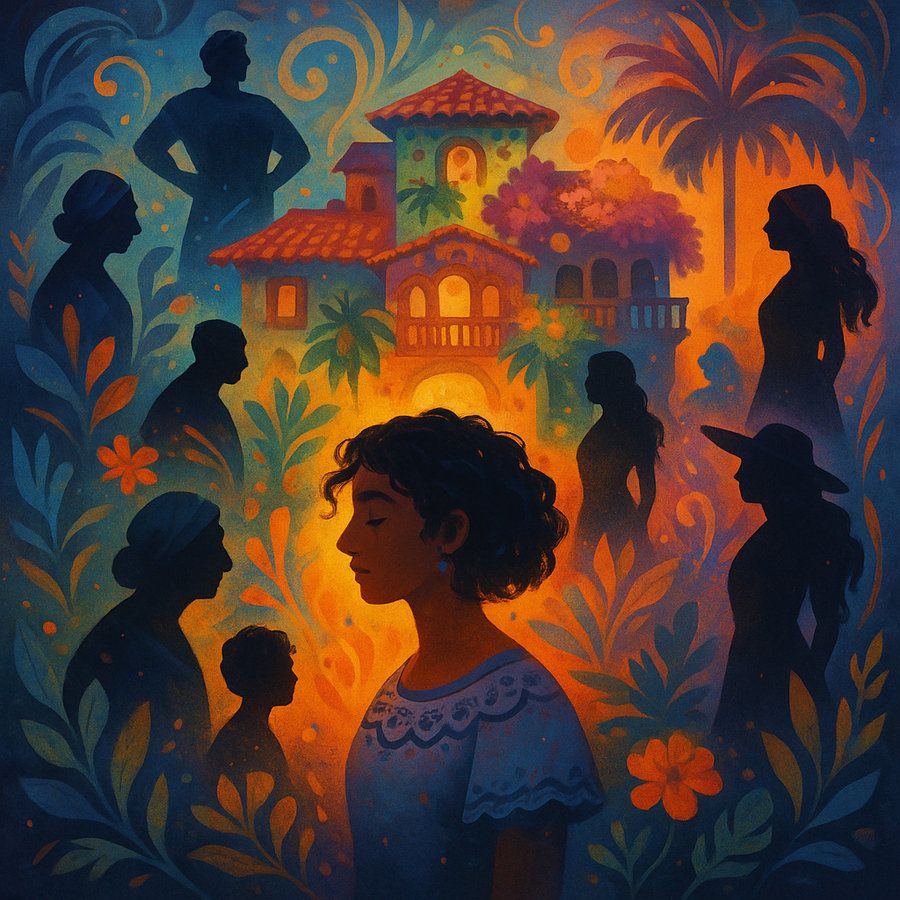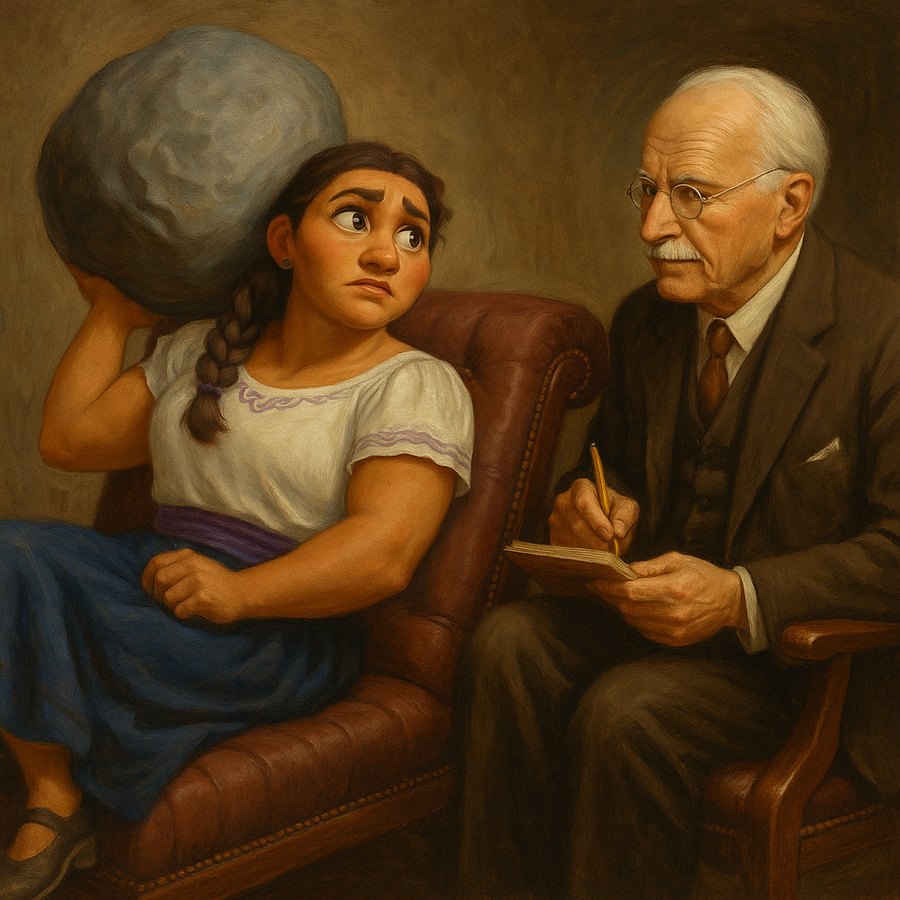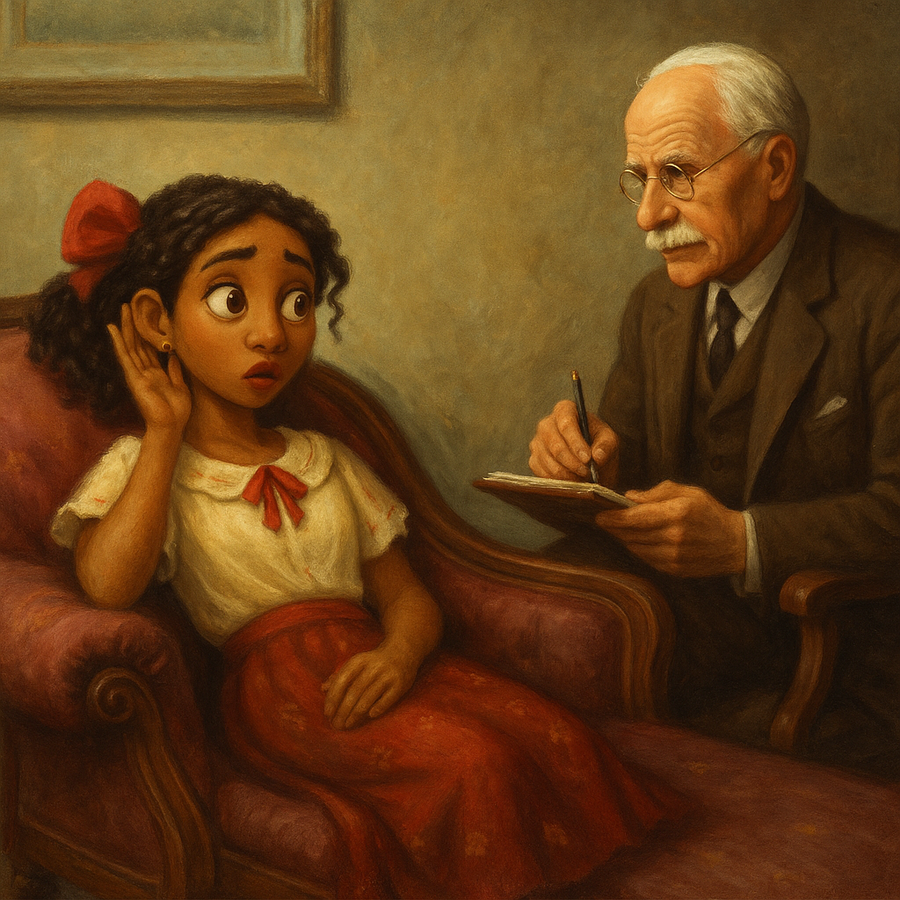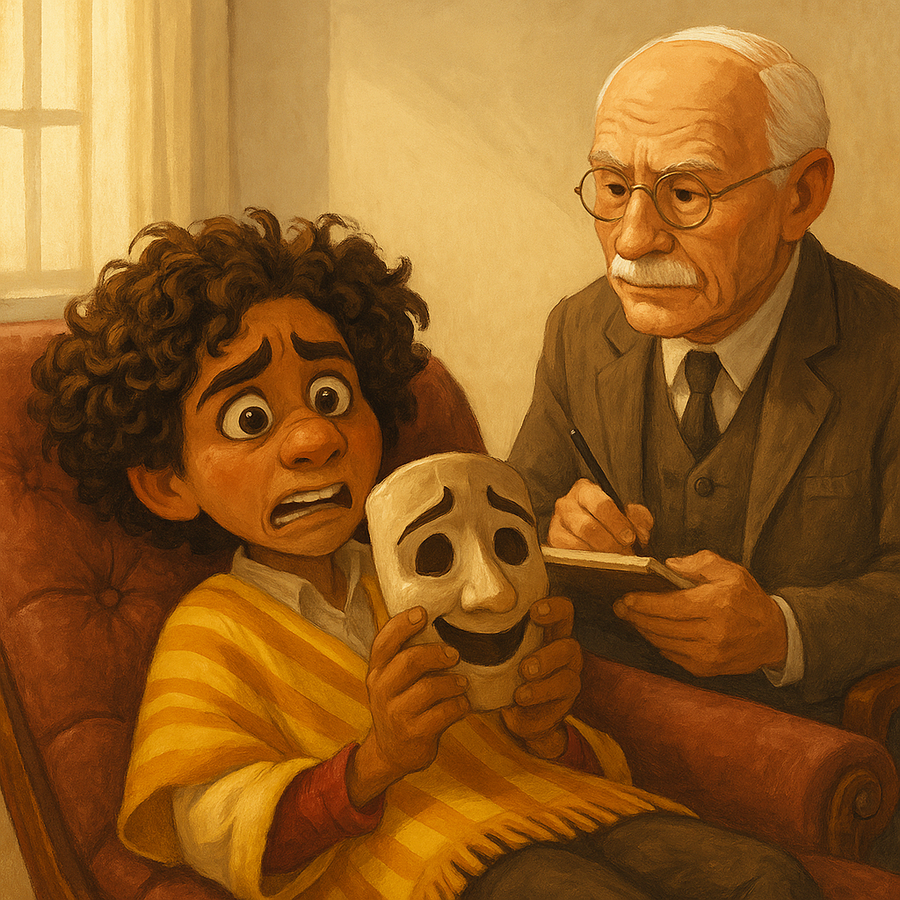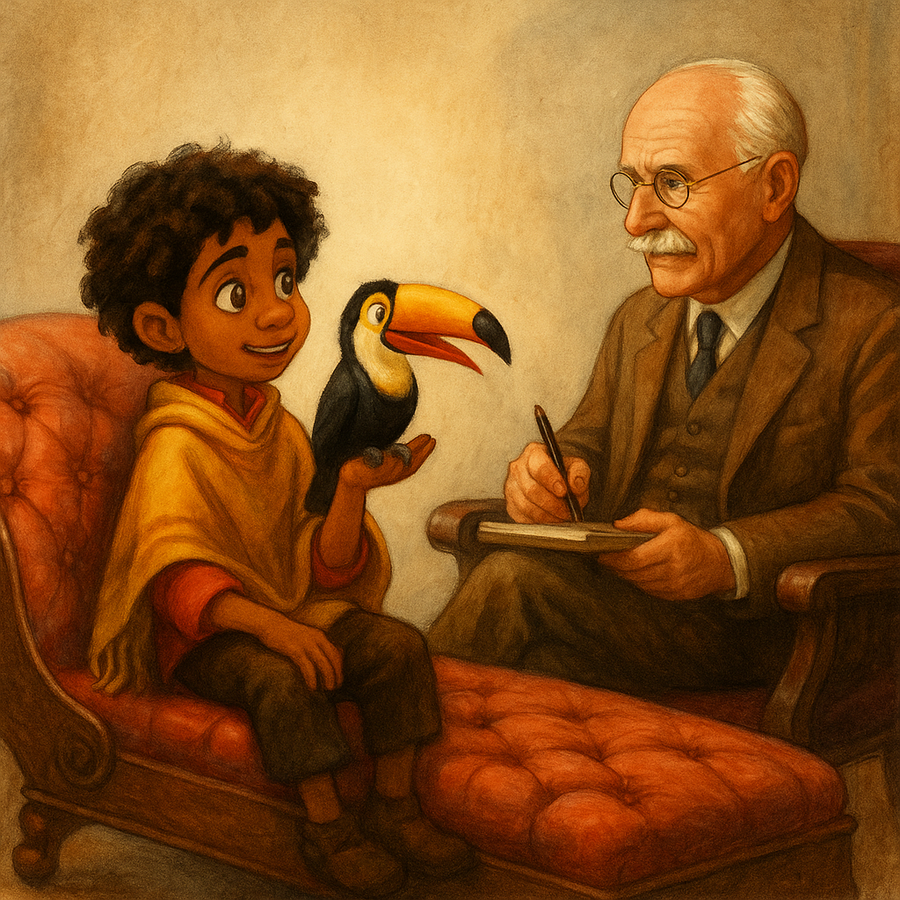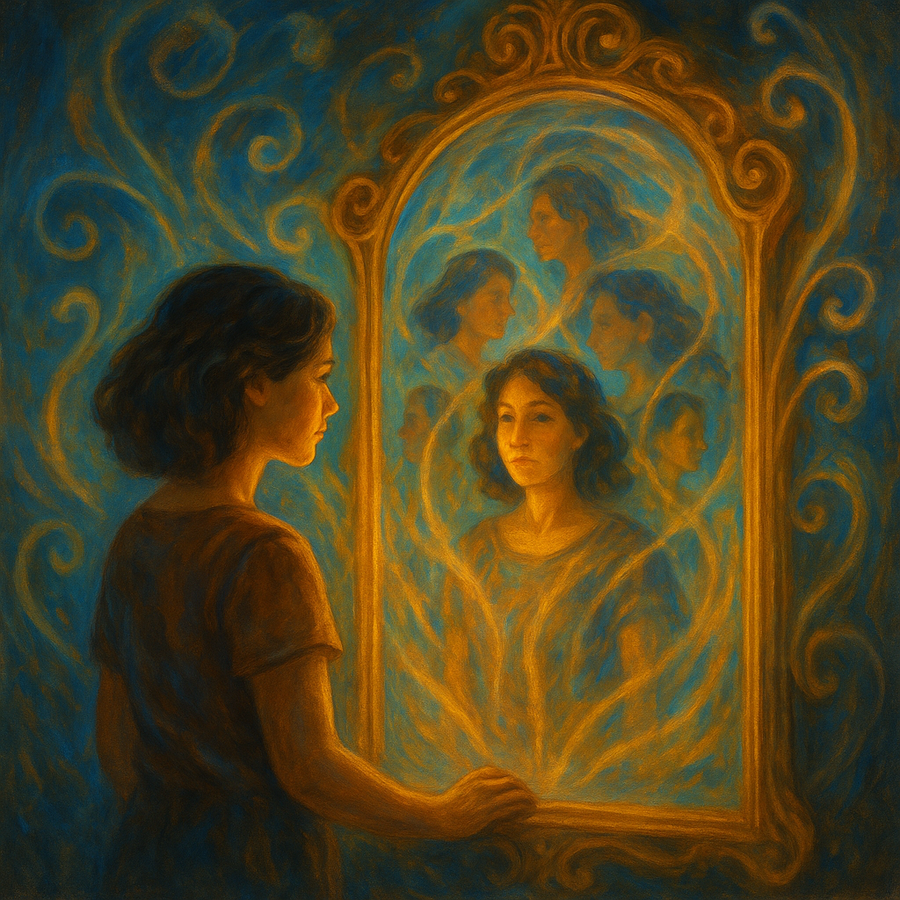Archetype: The Golden Child / The Idealized Daughter / The False Self
Isabela embodies the archetype of the Golden Child - showered with praise, held up as the family ideal, and burdened with the pressure of perfection. Her powers reflect beauty, grace, and growth, but only within the confines of what others deem acceptable. She represents what psychologists call the False Self, a constructed persona shaped not by inner desire, but by the projected hopes and expectations of others. Her early scenes in Encanto reflect a person performing ideal femininity, harmony, and submission - even while chafing internally.
From a Jungian standpoint, Isabela is an expression of The Persona, the mask worn to navigate social approval. But her persona is so seamless, so complete, that it eclipses the authentic self underneath. In Internal Family Systems (IFS), this mirrors a Manager part - a role crafted to preserve relational security by aligning with what others want. This part suppresses internal needs, especially those that might introduce disruption, contradiction, or freedom.
Her turning point comes when she explores a new kind of growth - wild, chaotic, and beautiful in its unpredictability. This moment marks the collapse of the False Self and a surge of Self-energy: spontaneous, joyful, and unconstrained. Isabela’s expansion into new creative forms is not just aesthetic—it is psychological. She begins to individuate, a Jungian process of integrating the shadow (in this case, desire and messiness) into the conscious self.
In the 7 Inner Child framework, Isabela reflects The Overachiever, a child who learns that love is earned by excellence and performance. Her inner rebellion, initially subtle, gains voice and vibrancy when Mirabel reflects her worth back without conditions. The dynamic between Isabela and Mirabel is critical—Mirabel doesn’t challenge her power, she affirms her right to define it for herself.
Ultimately, Isabela’s transformation is a movement from curated perfection to liberated self-expression. Her journey teaches that beauty is not control—it is aliveness, variety, and emotional truth. The flower that grows in chaos is just as sacred as the one grown in a straight line.. She is the classic Persona in Jungian terms—projecting perfection to stay loved. She may also align with the Enmeshed Child in trauma theory: praised for compliance, punished for deviation.
